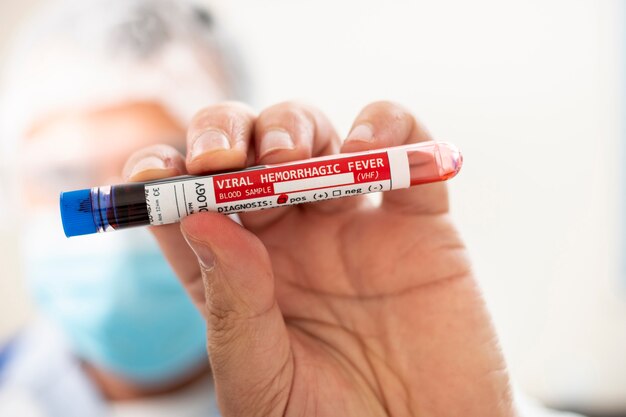Your Guide to Does Medicare Pay For Prp Knee Injections
What You Get:
Free Guide
Free, helpful information about Medicare FAQ and related Does Medicare Pay For Prp Knee Injections topics.
Helpful Information
Get clear and easy-to-understand details about Does Medicare Pay For Prp Knee Injections topics and resources.
Personalized Offers
Answer a few optional questions to receive offers or information related to Medicare FAQ. The survey is optional and not required to access your free guide.
Are PRP Knee Injections Covered by Medicare?
Platelet-rich plasma (PRP) knee injections have become a popular treatment option for individuals suffering from knee pain, often due to osteoarthritis or injuries. By using components from a patient's own blood, these injections aim to accelerate healing and reduce inflammation. However, when considering PRP treatments, a common question arises: Does Medicare cover PRP knee injections?
Understanding Medicare Coverage for PRP
In the realm of health insurance, Medicare offers essential health coverage primarily for Americans aged 65 and older, alongside certain younger individuals with disabilities. Unfortunately, as of now, Medicare does not typically cover PRP knee injections. The reasoning primarily hinges on their classification as experimental or investigational treatments.
Medicare bases its coverage decisions on current medical evidence and the proven effectiveness of treatments. Despite increasing anecdotal and preliminary research supporting the efficacy of PRP injections, sufficient large-scale studies to confirm their widespread clinical benefits are yet to surface. Consequently, while promising, PRP treatments remain outside the purview of standard Medicare coverage.
Alternative Options to Fund PRP Treatments
For those keen on pursuing PRP injections despite the lack of Medicare support, there are several pathways to explore:
Private Insurance Plans: Some private health insurance providers may offer partial or full coverage for PRP injections. It is essential to review individual policies or speak with an insurance representative to understand potential benefits.
Flexible Spending Accounts (FSA) or Health Savings Accounts (HSA): These accounts use pre-tax dollars to cover medical expenses, potentially including PRP treatments.
Payment Plans: Many medical practices offer payment plans or financing options to make the cost of PRP more manageable.
Exploring Broader Financial Assistance Programs
Beyond PRP-specific funding, several financial assistance programs exist to help alleviate healthcare costs and general financial burdens:
Government Aid Programs
Government initiatives, such as Medicaid and the Children’s Health Insurance Program (CHIP), can provide comprehensive coverage for eligible low-income individuals and families. While these programs might not cover PRP specifically, they can alleviate other healthcare costs, freeing up resources.
Debt Relief and Credit Solutions
Managing medical debts can be challenging. Some avenues to explore include:
Credit Counseling: Enlist the help of certified credit counselors to devise a personalized debt management plan.
Debt Consolidation: Combine multiple debts into a single payment, often with a lower interest rate.
Medical Bill Negotiation: Work with hospitals or medical providers to negotiate lower balances or payment schedules.
Educational Grants and Resources
For those considering a career pivot or needing to upskill, educational grants and vocational programs can provide:
Federal Pell Grants: Financial aid for undergraduates pursuing higher education in certificated or degree programs.
Workforce Innovation and Opportunity Act (WIOA) Programs: Training resources designed for those looking to enhance job skills and employability.
Navigating the nuances of healthcare coverage and financial aid can be daunting, but understanding available options can open doors to essential support.
Quick Financial Assistance Options 💼
Medicaid & CHIP: Government health coverage programs for eligible low-income families.
Flexible Spending Accounts (FSA) & Health Savings Accounts (HSA): Tax-advantaged accounts for medical expenses.
Credit Counseling: Professional assistance for creating a debt repayment plan.
Debt Consolidation: Merging debts into a single, potentially lower payment.
Medical Bill Negotiation: Engage directly with providers to manage costs.
Federal Pell Grants & WIOA Programs: Funding for educational advancement and career training opportunities.
By exploring these opportunities, individuals can navigate financial challenges effectively, whether they're seeking healthcare solutions or enhancing their skillsets.
What You Get:
Free Medicare FAQ Guide
Free, helpful information about Does Medicare Pay For Prp Knee Injections and related resources.

Helpful Information
Get clear, easy-to-understand details about Does Medicare Pay For Prp Knee Injections topics.

Optional Personalized Offers
Answer a few optional questions to see offers or information related to Medicare FAQ. Participation is not required to get your free guide.


Discover More
- a Medical Provider That Accepts Medicare Assignment Must
- a Medical Provider That Accepts Medicare Assignment Must Quizlet
- a Medicare Patient Received Treatment That Isn't Covered By Medicare
- a Medicare Patient Receives Treatment That Isn't Covered By Medicare
- a Medicare Supplement Basic Benefit Is Quizlet
- a Medicare Supplement Companies
- a Medicare Supplement Policy Is Quizlet
- a Medicare Supplement Policy Must Not Contain Benefits Which
- a Patient Received Treatment In August Medicare
- Am I Eligible For Medicare
